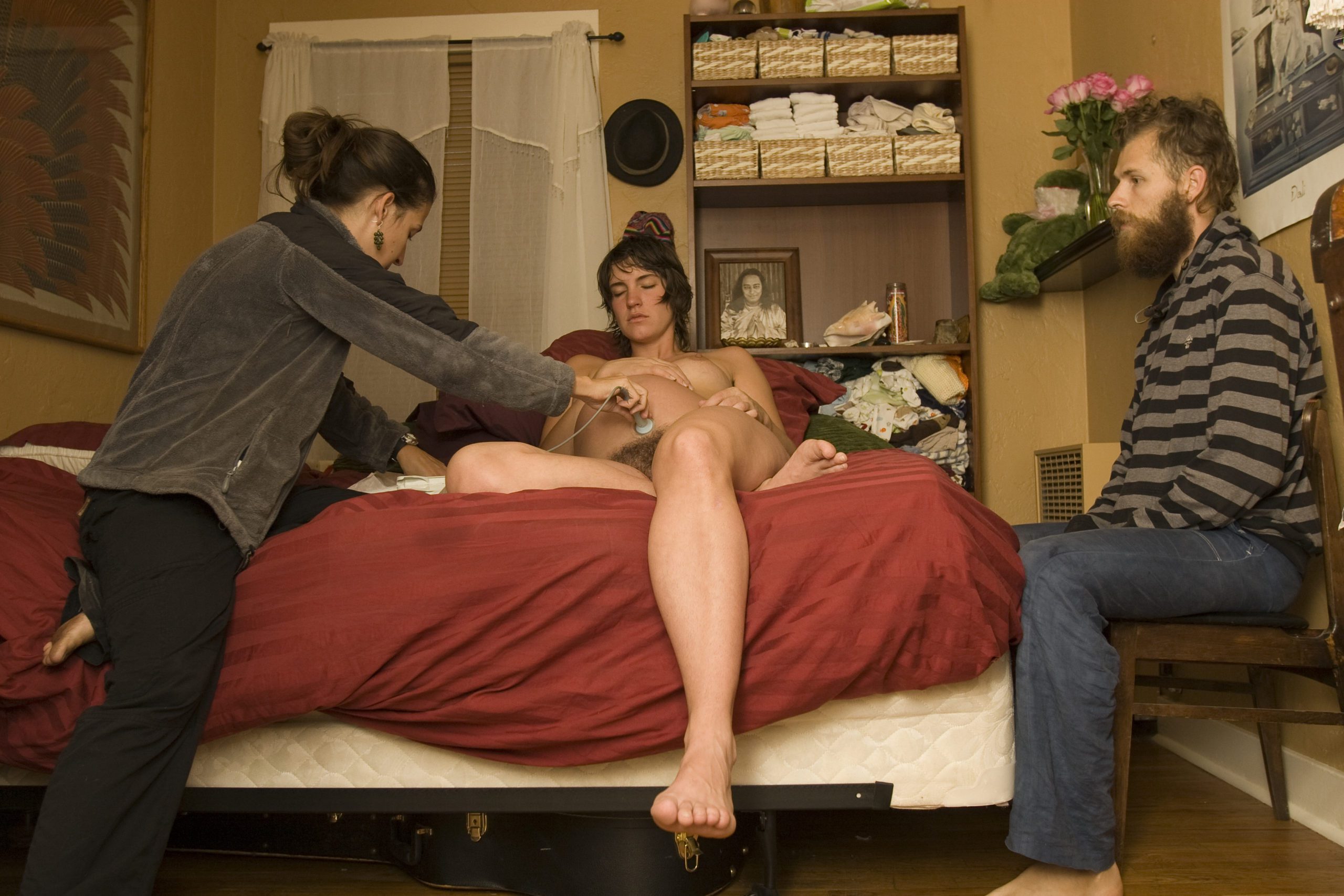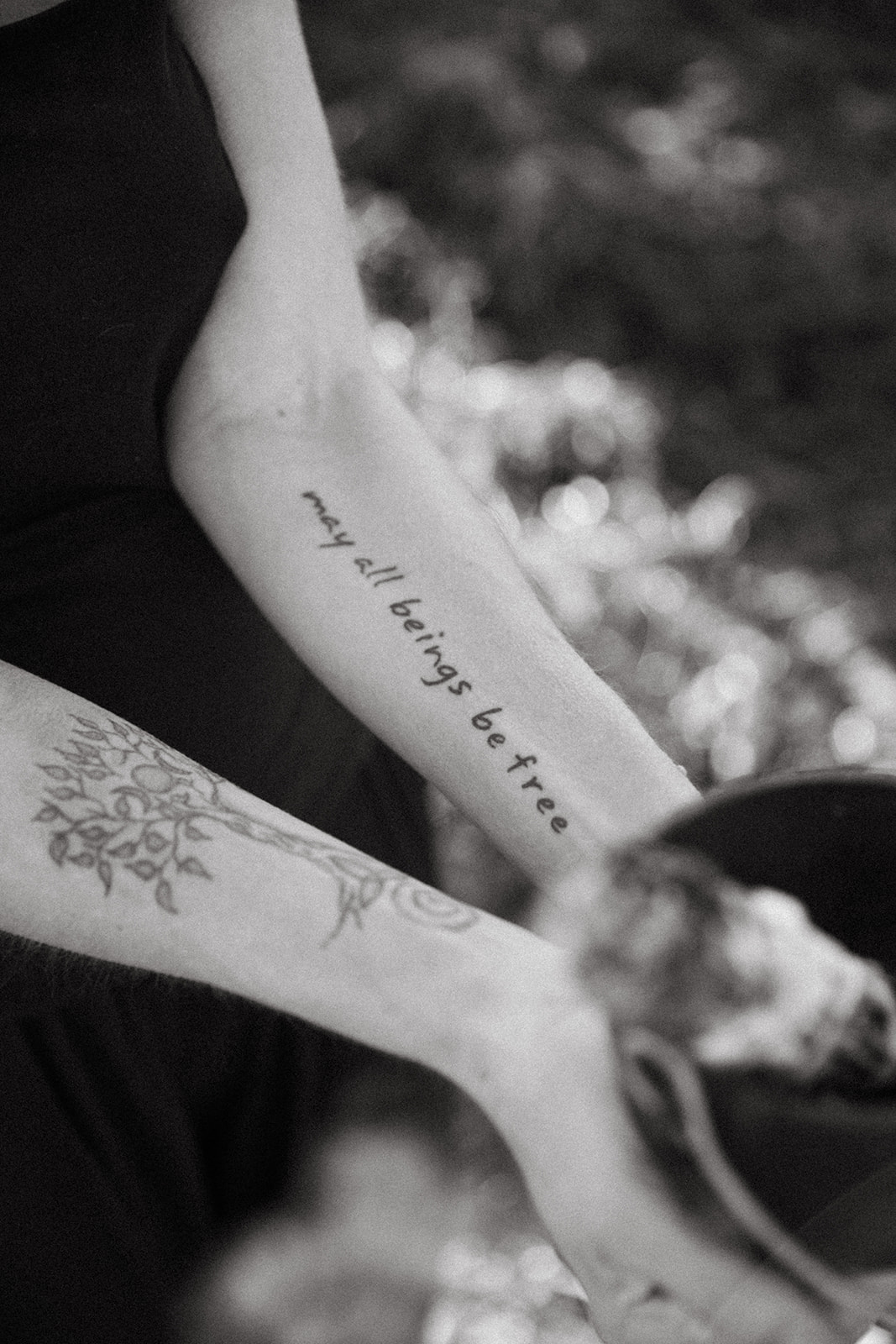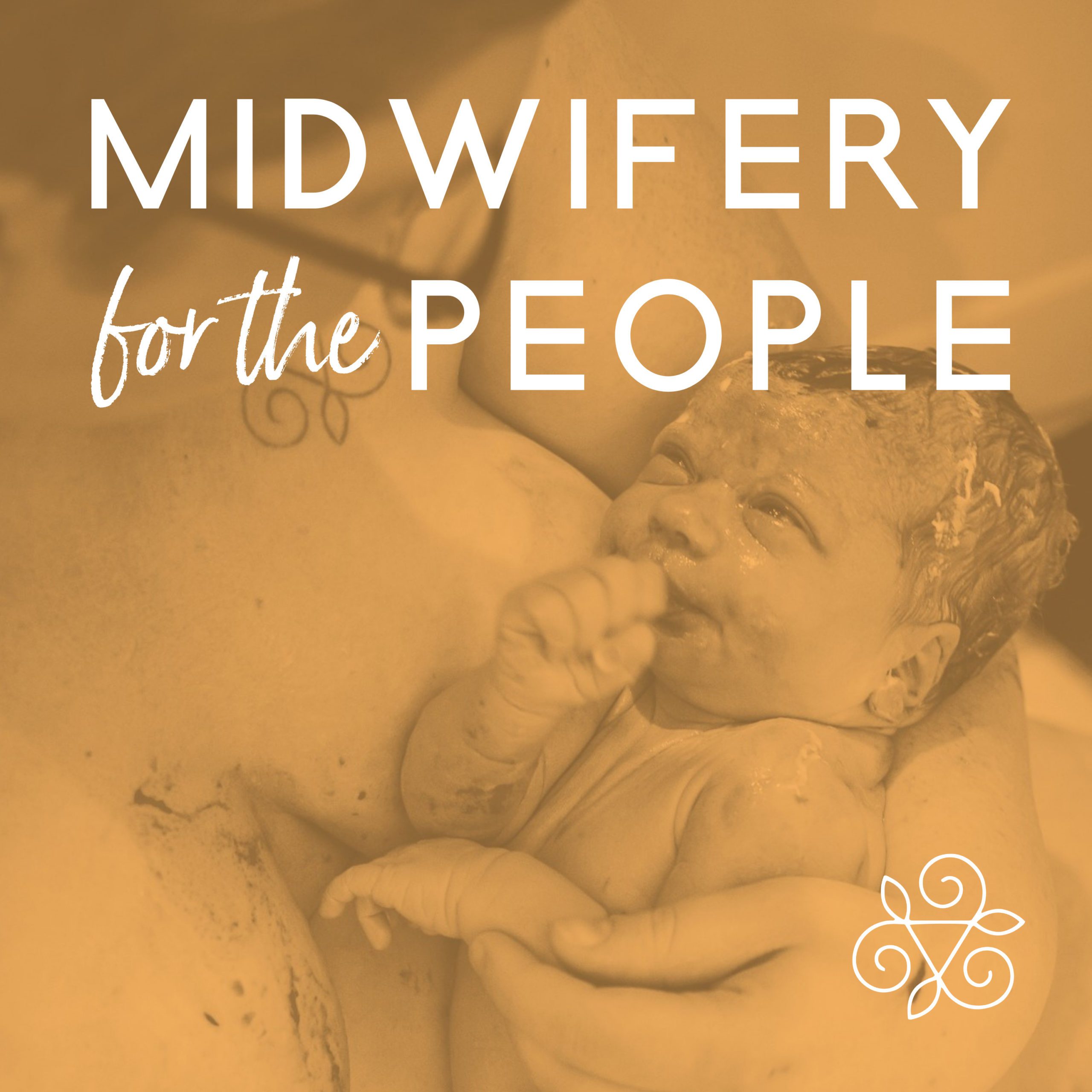
This is an edited transcript from my Midwife Monday Youtube Live event, June 21, 2021. You can watch the actual video here.
Let’s talk about Rikki’s topic. I think that is really beautiful, and I think would feel good today to reflect on that because it is a solstice.
We’re talking about birth and how we have all kinds of pieces come in for us individually to be able to be aligned with ourselves and, I think, the spiritual calling that is this work. So I’m not looking to be aligned with the state. I’m not looking to be aligned with medicine. I’m looking to be aligned with women and their families and my own knowing and my own guidance and that of spirit. Not everybody approaches birth that way, and that’s fine. I think there’s definitely a place for everybody. I think there are also women and families that appreciate this perspective and people that would like a different one. So we’re all good there.
So to kind of kick the topic off for a few minutes, I was in the mode of paying more attention this week because of our witchery class, right? It kind of trained us all well or better, I think, to just notice and be more intentional. That was one of the key goals of bringing this group of women together. So for me, on Saturday, we had our last live class. And that morning I saw two deer out. And I took note of that, not just the symbolism behind the deer, but the two because at first I just saw one. And I said hello to it. And I was just looking at it. I was going to take a picture, and then I was like, “Put away your—why would I take a picture of it? Just enjoy this deer.”
And then I kind of peeked, and there was a second deer. Two, I think, young male deer together. And so yeah. I was interested in that. And I think they were both male, but it doesn’t matter, in my mind, two is the balance. So two is the masculine and feminine. Two is heaven and earth, right? There’s so many cool ways to feel that as balance. And with solstice here or nearly here on Saturday, I very much felt that just practically in my life right now. I have Jason, right? He’s my masculine counterpart, so I felt that especially in this morning process. Just that the balance of that. And the balance of control and surrender with this process. I did take note—and this isn’t quite your topic here, Rikki. But I did take note that we have a lot of masculine energy coming in to support this move which I thought was really interesting.
So we have a male friend driving the truck. We have another male friend driving the dogs. We’ve had some other guys that are willing to help. And on one hand, right. Moving is physical so maybe that’s why. But it doesn’t quite feel like that because their energy is different. And it’s not just hired help showing up. These are people we care about. These are people that are investing time they don’t need to invest in helping us. And so feeling that, what does that mean? What is this masculine energy about in this move? And I don’t know other than I feel like so much of it, thus far, has been the feminine, has been the unknown, and the messiness and the surrender and all of that. So it’s kind of being balanced now by the practicality of having some men involved. But let’s talk about birth work.
I think it’s fair to say—and feel free to disagree—that in birth work, in particular, there are those of us—and it’s not everyone—that maybe we are more weighted towards the feminine because we do feminine work, right? We’re sitting with women. And I don’t know. I don’t know everyone’s experience, of course. I think there’s certainly the medicalization of midwifery that, to me, is so heavily masculine. But yet, even within that system, I’m sure there are many midwives who are practicing or trying to in a highly feminine way, but then maybe there’s conflict there because they’re already in this masculine bigger system. And it’s difficult. And then I think if I’m feeling into it—and I could be wrong—but that’s where a lot of the burnout and stuff comes from because you’re trying to maybe follow that feminine instinct, that following the curve, but you’re in this system that is telling you how, when, and where. And that is a very difficult way to practice as a midwife, in my opinion. That’s been my experience.
So even today, I had a conversation with these people that I was speaking of that live in our new place. They’re having a baby. And they’re new because it’s their first baby. And they’re also new to a lot of these ideas as I think a lot of the community there will be because licensing just became a thing a couple summers ago. So I’m curious how these conversations will go because there’s this idea that birth, essentially, is feminine at its core in all of the ways. And yet, we’ve overlaid this masculine process on it in a million ways from dilation and you have to be 10 to push a baby out to how many hours to get you to push, how many hours can I be in labor, how many weeks can I be pregnant. It’s like incompatible in a lot of ways. And I could feel the struggle in this woman just to understand where the feminine aspect needs to be front and center for her as the birthing women. That’s what I believe.
You’re not in your brain, and I don’t think you probably should be. But she was more asking questions about the midwifery side, like I’ve just said. Can I do this? Or what happens if? Or can I birth this way? It’s like yes. Please. You are the feminine creatrix, and that’s what I said to her. You are the artist. You are femininity embodied. And it’s not that we do ultimately always have a balance, and that’s where a male partner can be really beneficial in a birth process obviously. And even the midwives, sometimes we do balance it out, I think, in the masculine in the sense of—not controlling it like from a legal perspective like I was saying with the licensing. but for me, I’m also there to compute some things, I think. I’m not just there to knit in the corner and pray although I do do that. I don’t knit, but I will pray. I’m also there to—in the other room, look at my watch and be like, “Okay. Well, this has been happening,” and chart it down and make sure that I’m keeping up with the masculine detail of birth that once in awhile we need to know or can be complicated or can require conversation or informed choice or decision making.
That’s the way I think of it. The mother is holding down that feminine. And yes. We’re all supporting in balance hopefully but from a place of integrity, from a place of purely feeling that that’s the balance that’s needed rather than routinely holding down that masculine sort of over controlling, must manage the situation, right? I think we all know what I’m talking about because energies come in all flavors. So feminine isn’t one way. Masculine isn’t one way. And to keep it simplistic, I think we’re all familiar with the couple varied ways that those energies can look. So feminine energy also has the potential to be out of balance, right? Just as the masculine. And out of balance feminine energy, I’m sure we’ve all been there too. It’s nowhere. It’s nowhere grounded perhaps. Or there’s nothing kind of holding it down. There’s no core. There’s no maybe even intention. It’s just wild to the point of not being too—not serving us in whatever it is we’re doing. So all of the things can go off in—I mean masculine and feminine can both go off in unbalance directions. So it’s like first we need to maybe think about how that is balanced on its own, right? And then the coming of those things together to create the ultimate balance.
And to go off down a brief little rabbit hole, I think there’s a whole of manifestations of the patriarchy that are hidden from us. And it’s not my job to point out all of the ones I see because I’m sure I don’t even see all of them. But something like free birth comes up. There’s a lot of that out there. And there’s also a lot of imbalance in that. Like not only a disdain for the patriarchy but an ironic accepting back of still doing it away rather than flowing with what’s needed, right? And I’ve also been witness to some of those situations where the actual male, the partner, and in his masculine energy completely overwhelms the feminine. And he kinds of takes on this role of care provider. So I think there’s a lot of gray right now and probably always. And I think that’s also really interesting to talk about because it’s not just the licensed midwives. It’s not just the OB/GYNs that are representing that model to me. I’ve seen it. I’ve heard it. I’ve felt it in all kinds of ways, so it’s just being mindful and each making your own choices. There’s no wrong or bad, but I think sometimes those are uncomfortable conversations too. And people aren’t quite wanting to go there, and they feel that it’s some kind of an attack on their choices. But I just call it as I see it. People can do whatever they want.
The charting and all of that stuff. Honestly, I enjoy it in the ways that it plays into my comfort and my assessment. And that’s not the most fun word. My interpretation of the situation, right? So it’s not everything. A number is not everything. And most births that I’ve attended nobody is interested in a lot of it. So do you want to listen to the baby? Nope. Okay. Well, feels good to me. Feels good to them. And so there’s not a whole lot of numbers. But if we’re talking about a more—let’s see how to say it. Like a first birth, let’s just talk about first birth. Sometimes those go on for awhile. And it can be over a couple of days. Stop, start, or not. Just kind of over a couple of days. And so I do find it helpful to keep myself grounded, to feel like I understand as much as I can, that part. And there is definitely other parts. There is her whole emotional landscape. There’s the partnership. There is all of it. But the part where there are numbers and there are charts I’m not doing that for anyone else. I’m not doing that because I’m afraid of the state taking my papers, or I’m not not doing that because I’m afraid of the state taking my papers. I’m doing that purely for me, so that I understand. And I don’t get lost in this birth haze that isn’t really mine because that’s not helpful.
She can get lost in that. But I feel it is my duty to maintain a sense of awareness around what’s happening. And I think there is a way to do that without doing it because you’re accountable to someone else. So I guess that’s the difference. Hopefully, that answered your question. And sometimes that piece, that masculine piece, becomes important because you’ve been 30 hours in at a birth. And if you haven’t been paying attention, you don’t even know what’s going on. You just know it hasn’t happened yet. But how is the mom doing? How is the baby doing? How long have the waters been open? What’s happening? And there is where I think midwifery skills are really super awesome. And I definitely will never understand—and this is me. I won’t understand people just attending births without that piece because, for me, I need that piece. I want that piece. I can always do better with that. And that is also engaging that part of myself, and that feels good and healthy to me. So like I said, if I was just wanting to sit at births and not think or analyze ever, that I would have done it that way. But I’m comfortable with the way I do it. And yeah. And I think the people that hire me want that. If they don’t, then maybe they hire a doula. They’re not interested in any of the clinical stuff, and that’s fine.
So just be clear about who you are, what you offer, and then people will choose, I think, based on what they need although there’s certainly other conversation there because people don’t entirely understand all of these perspectives. How could we expect them to when we have all sorts of words? Birth keeper, doula, midwife. People have no idea half the time who you are or what you’re doing or what they’re hiring unless you’re super clear. So if you’re not interested or you’re not skilled or you don’t want to be around that piece, then you just got to be honest about it. But for me, that’s always been a piece of understanding the situation. And sure. Lessons learned all the time. How heavily do you weight that masculine piece at any one moment? And there’s all kinds of stories I could tell you around that that I don’t have time for today.
But even the opposite of what you would think. Sometimes that masculine piece of information is concerning. It’s not what you want it to be, and everything is fine. So it’s got to be weighed with all of the other pieces. The intuition of the mother, the intuition of the midwife, the energy of the space. Do you feel like this is okay? Or even though everything looks great, maybe you don’t feel like it’s okay. So that’s what keeps birth interesting. The fact that if we had all the perfect pieces to fit together at the perfect time, if that made the perfect birth, then I don’t know about you. That might be nice to some people, but also there’s not a whole lot of mystery there.
So I think we’re definitely embracing the mystery as a part of this path, and I loved your question today, Ricki. I love this conversation. I’m sure I could babble about it for many more hours probably. Just this idea of balance and how to bring in different aspects and really there might be some births, like I’ve said, that are maybe imbalanced. And that’s perfect. They are purely the feminine, right? There’s not anything to—nothing needed for this mom and baby.
And we have to trust that that’s what she needs, right? So it’s not our balance. It’s the balance of the universe. The balance that this mom and baby is creating. So we’re not judging it, I hope. I mean we try our best from the outside to not. But again, politics and all of this can get in the way because then we’re not paying attention. We’re saying, “Nope. This is the way it goes. This is the piece that’s needed. We always do the same thing.” So not my circus, as they would say. Yes. We could talk about it until I get to Kentucky, but I think I’m going to wrap it up.
If you resonate with this talk, check out more on our YouTube channel and if you’re interested in this version of midwifery, check out our Indie Birth Midwifery school. We are enrolling all of the time, and attracting amazing women all over the world who want to be autonomous midwives.





+ show Comments
- Hide Comments
add a comment